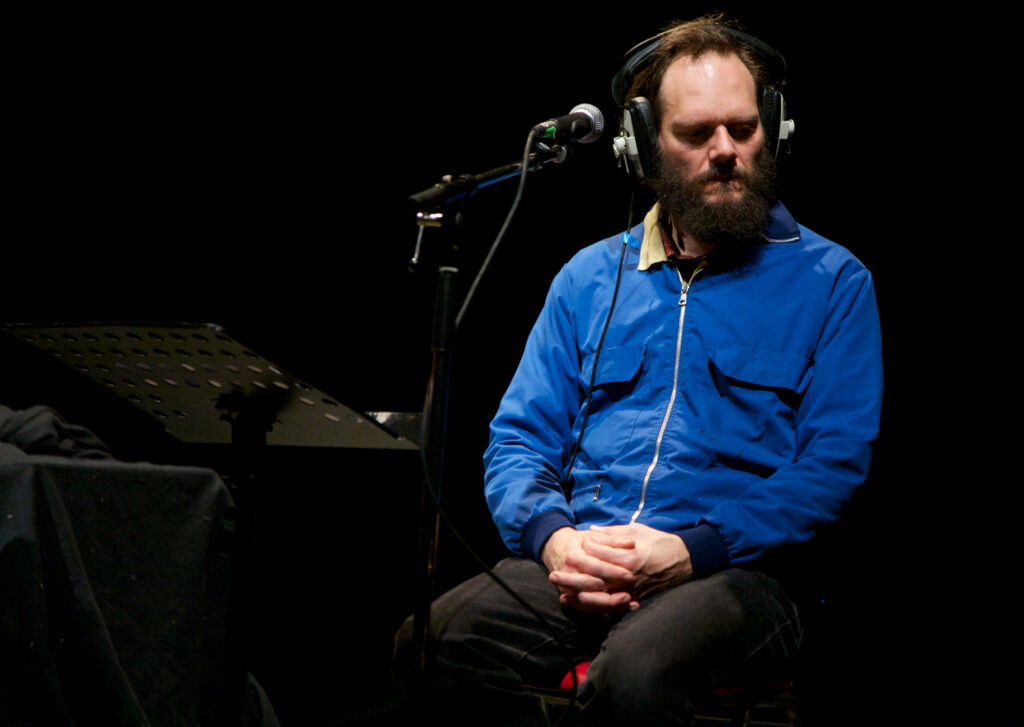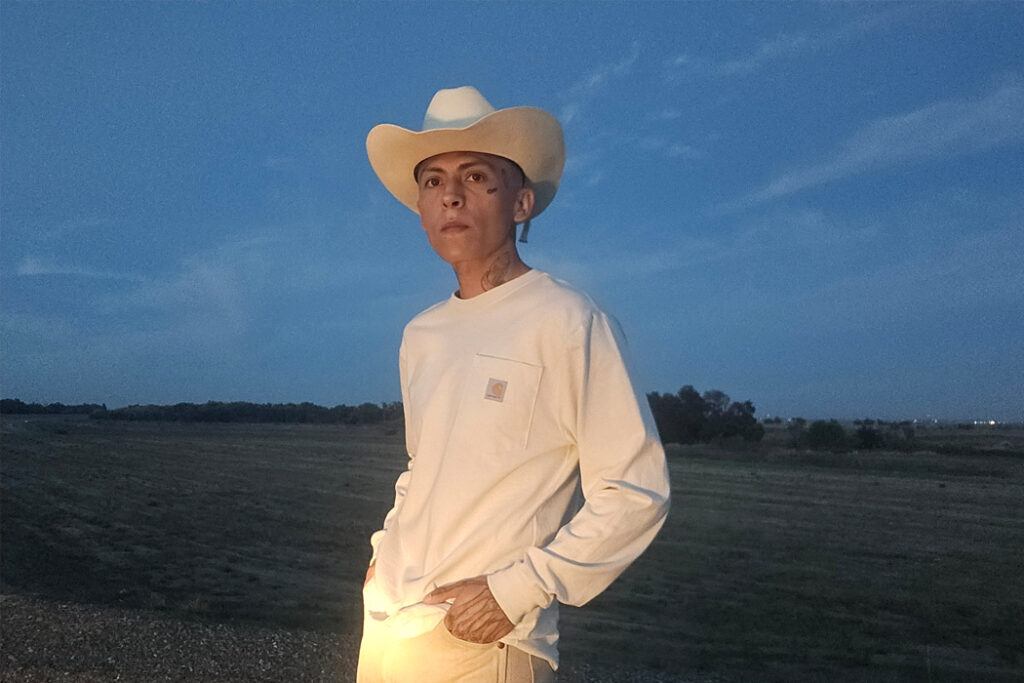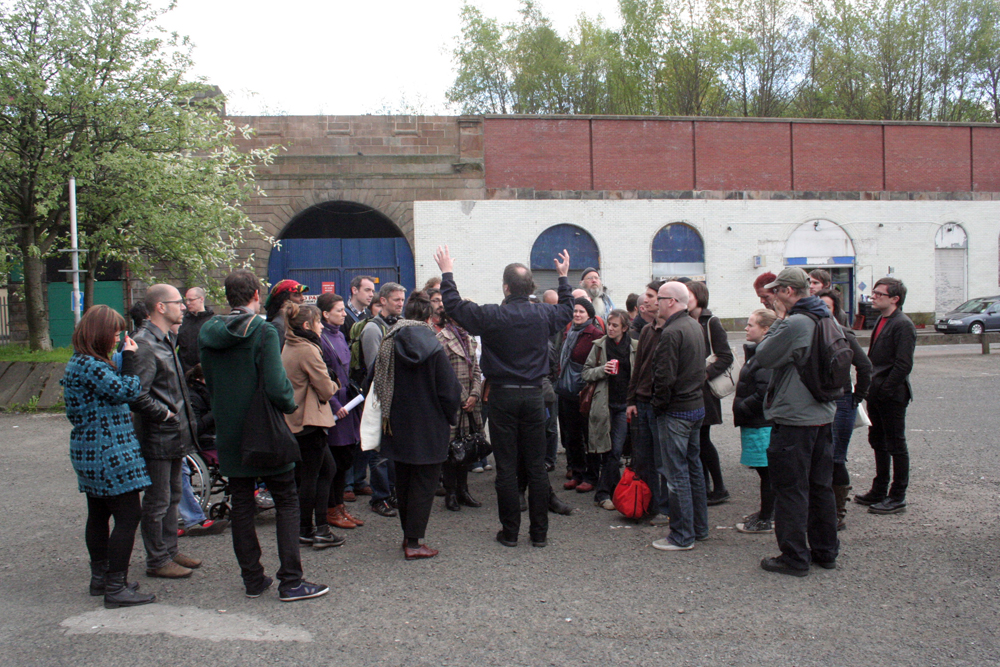
House – “The Tipping Point”
Aileen Campbell Eric La Casa Gaël Leveugle Jean-Luc Guionnet Neil Davidson Seijiro Murayama
Listening to people listening to their own homes. Musicians and actors will listen back to recordings made in local peoples homes on headphones, and interpret/ translate what they are hearing.












